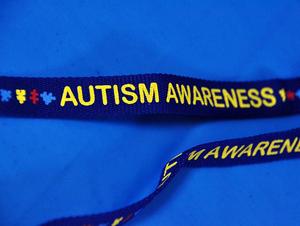Study links environmental factors to autism
(Image by Flickr user mel_rowling)
Story from Living on Earth. Use audio player above to listen to full report.
There are significant and exciting new findings that fundamentally alter our understanding of what causes autism. For generations, scientists thought autism was essentially a genetic disease, but there’s growing evidence environmental factors may play an even larger role. The case is made in a new study of twins in the most recent issue of the Archives of General Psychiatry.
The study also reports a substantial increase in the prevalence of autism in the last three decades, from four to five per 10,000 children in the 1960s, to around 40 per 10,000 children today.
Dr. Martha Herbert is professor of neurology at Harvard Medical School and an expert in the field of autism research. In the following interview with Living on Earth’s Bruce Gellerman, Dr. Herbert explains the new study and its findings:
GELLERMAN: So let’s look at the methodology that the researchers used — they studied twins.
HERBERT: Right — because twins are in the same family and they share at least some genes. But identical twins share all the genes and fraternal twins don’t share all the genes – they have maybe 50-50.
GELLERMAN: So if something shows up in the identical twins you’d say, “Ah, genetic.” But, if something shows up in the fraternal twins, you’d say, “Mmm, there’s something else going on here.”
HERBERT: Yes, that’s what people have usually said.
GELLERMAN: So these researchers studied, what, about 192 pairs of twins?
HERBERT: Right.
GELLERMAN: What did they find?
HERBERT: They found that actually there was more concordance than expected in the fraternal twins, and less in the identical twins. That means that if one is autistic, then the other is autistic. So usually it has been that 60-90 percent of the identical twins were both autistic, and 0-10 percent were both autistic if they were fraternal twins. And that led people to think that this was, by in large, very, very strongly, a genetic disorder. But to have there be so much match, concordance, in the fraternal twins, and not so much in the identical, suggests that there’s shared environment. What they calculated was that the risk for autism was 38 percent from genetics and 58 percent from environment that twins shared.
GELLERMAN: So it’s a very low number in terms of genetics and very high in terms of environmental issues.
HERBERT: Yes, which is really different from what everybody’s been saying up until now.
GELLERMAN: So what kind of environmental factors could we be talking about?
HERBERT: Well, there are lots of environmental factors that people have been talking about and trying to do research about. It ranges from chemicals to nutrition to exposures like to being living near a freeway — many, many different types of factors.
GELLERMAN: Are there any suspects that perhaps stand out from the crowd?
HERBERT: There are a number of chemicals that it’s a good idea to watch out for. Bisphenol –plasticizers that make plastics moldable. Flame retardants — flame retardants in baby pajamas and in bedding that were not tested for the baby urinating in the bed, which then makes the chemicals float around in the air that the baby then breathes in. Pesticides — be really careful about spraying your house. Find more natural ways of avoiding pest exposure. Pesticides in food — try to eat organic if possible. Don’t microwave in plastic. Look under your sink and clean out a lot of the products, which have long lists of chemicals that you can’t pronounce. There’s lots of ways of cleaning your house with simple products, with vinegar and water and baking soda, and things that are not going to cause problems, that may show up now or later.
Read full interview on Living on Earth website.
———————————————————–
Hosted by Steve Curwood, “Living on Earth” is an award-winning environmental news program that delves into the leading issues affecting the world we inhabit. More about “Living on Earth.”
